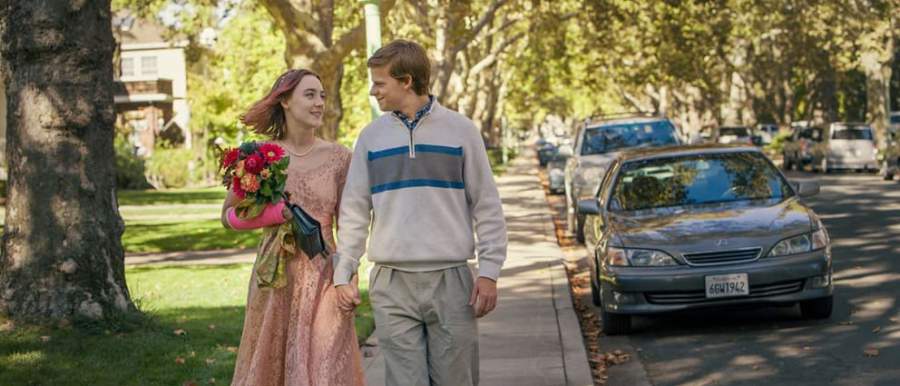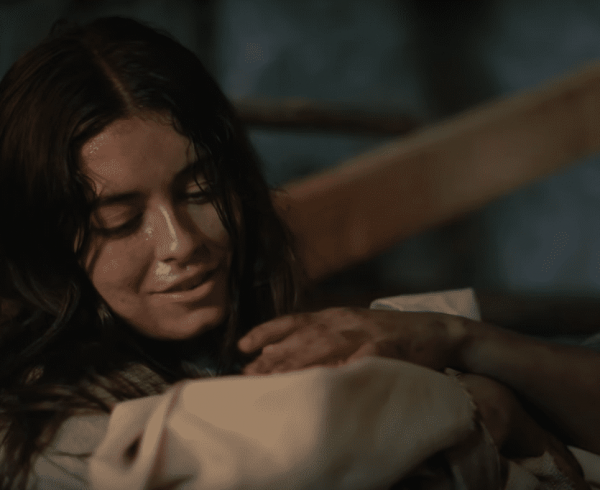In a year when nostalgia or rejection of the past seem to be the only options on offer, Greta Gerwig’s Lady Bird is, quite frankly, a welcome respite. The title character is a native of Sacramento who attends a Catholic school, though she’s not Catholic herself. The film follows her through her senior year of high school. We see her participate in musical theater, make and break friendships, and confidently work to create her personality. Applications for college (and financial aid) draw ever nearer. But the emotional core of the film is in the fraught relationship between Lady Bird and her mother.
As Lady Bird explores her identity — with creativity and humor — she discovers that rebranding, that most millennial of terms, is neither simple nor always wise. When she abandons old-but-solid friendships, she get disillusioned by the new people she’d thought she wanted to emulate. Even her first real sexual encounter is disappointing. But she finds it hard to process these choices with parents who embarrass and annoy her.
Mom is fearful that her daughter may not be ready to leave the nest, much less go to school across the country. They face financial problems, so it might be wise to keep her hopes low. But to Lady Bird, that’s not the support she craves. “I want you to be the very best version of yourself you can be,” her mother says. Lady Bird answers: “What if this is the best version?”
But slowly, Lady Bird comes to understand that her mother, for all her faults, is a real person who really does have her best interests at heart. One exchange with a friend expresses Lady Bird’s confusion well.
“She’s warm, but she’s also kind of scary.”
“You can’t be scary and warm.”
“I think you can. Your mom is.”
It’s a slow realization — and one that unfolds through the whole film, in a way that should be familiar to anyone with a close relationship with a parent.
In addition, while Lady Bird constantly professes how “bored” she is with her town, we see hints throughout that she may like it more than she admits. A guidance counselor notes that she writes about it in a way that belies a deep affection for her community. In several places, she herself admits that she likes other Sacramento neighborhoods — just not her own. It’s a welcome theme in a time when Middle America is underrepresented and parodied in most media. And Lady Bird herself begins to come to terms with her home. Eventually she even plans to attend a local college.
But Gerwig isn’t content to have the film end there. And rightfully so. I won’t spoil it except to say that Lady Bird does indeed get to fly (literally as well as metaphorically) and comes to appreciate in small measure how much her mother cares more deeply than she can know. And her final message at the film’s conclusion provides a deep satisfaction without being saccharine. Sometimes the view from a distance makes the virtues of a place clearer. Or maybe, as the novelist Walker Percy put it, “Home may be where the heart is, but it’s no place to spend Wednesday afternoon.”
When it comes to films involving traditional Catholic schools (or private schools in general), the faculty are either presented as predatory, or haughty and out of touch. However, Lady Bird, while it certainly doesn’t romanticize them, presents (most of) the faculty as reasonable people who happen to be religious. Even the obligatory pro-lifer who addresses a school assembly comes across as sympathetic, if a bit preachy, while another teacher responds well to a prank … just because it was funny.
While this may not be Gerwig’s first film, it has been described as a debut in the sense that it is her first solo writing and directing effort. The pacing is even and for the most part avoids the hackneyed coming-of-age tropes that could have overtaken the plot. In addition, Gerwig’s dialogue sparkles, as does Saoirse Ronan’s performance in the title role. Every line, every word, and every facial expression counts, whether as simple comedy or something deeper. The laughs are genuine, as are the more dramatic and emotional notes. I suspect this is a film that will bear re-watching and thinking about. Five stars out of five.
2018 Update: The Academy of Motion Picture Arts and Sciences nominated Lady Bird for Best Picture, Best Original Screenplay, Best Director, Best Actress, and Best Supporting Actress.












